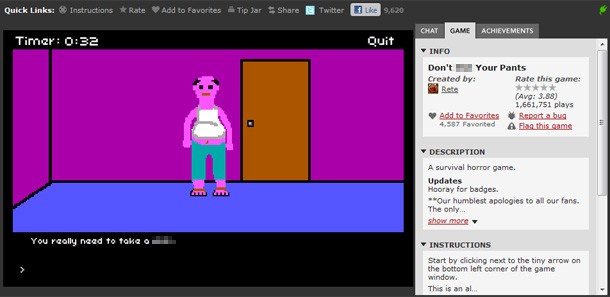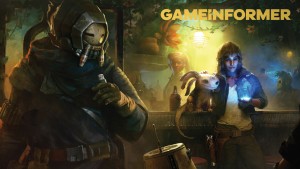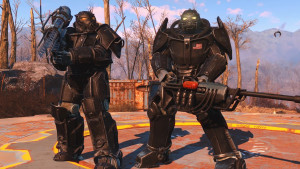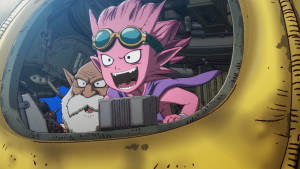Please support Game Informer. Print magazine subscriptions are less than $2 per issue
What’s Next For Kongregate After The GameStop Deal?

Our parent company GameStop today announced that it had entered into a deal with Kongregate to purchase the popular online-gaming portal. Once the news had a chance to settle in, it led to a number of obvious questions. Would Kongregate retain its indie spirit now that it had been scooped up by a gaming giant? Would the site get drowned out in an onslaught of new advertisements? Just what was in it for the retailer, anyway? We spoke with a couple of GameStop executives and one of Kongregate’s co-founders to learn more about the practical aspects of the partnership.
The GameStop executives on our call were Shawn Freeman, senior vice president of e-commerce and general manager of GameStop’s digital business and Chris Petrovic, general manager of the corporation’s digital ventures group. From Kongregate, we heard from Jim Greer, who founded the company in 2006 with his sister, Emily.
Q: How do you see this moving forward, as far as integrating Kong into the greater GameStop digital plan?
Shawn Freeman: I think from a public standpoint we’re not prepared to get into some of the specific details, as you might imagine. I think the real big opportunity, obviously, is that as we’ve talked about trying to build our multichannel digital gaming platform and using GameStop.com as a destination portal and gateway for that platform, we want to begin working immediately on figuring out how we bring that audience that we have already -- both on the Web site and the 500 million people who visit a GameStop store every year -- to Kongregate. I think we’ll be moving pretty quickly to do that.
Q: You’ve already bought Jolt Online, and they’ve started to move into the direction of Facebook games with Gangsta Zombies. Do you see any kind of changes along those lines? Are these two groups going to work together, or are they going to continue working separately?
Chris Petrovic: I think the short answer there is both, in the sense that they’re going to continue to be independent, entrepreneur-driven entities. But they obviously share a common fiber in the ecosystem of free-to-play games. You can imagine the kind of collaboration that can exist in terms of bringing games onto a platform and leveraging those. Jolt and their forays into social gaming a la Facebook is more of an indication of GameStop wanting to try to get smarter as an organization as it relates to this growing online game market. Social games, in the Facebook sense, are an interesting area for us to learn about, but we’re primarily focused in going after where we feel the core audience is spending the preponderance of their time when they’re not in the living room -- which is on sites like Kongregate and in some of the browser games that Jolt has created. It’s all very synergistic and all part of the same goal of GameStop to get further entrenched in that particular sector of the gaming market.
Jim Greer: I like Facebook a lot and I use Facebook a lot, and Facebook is our number two source of traffic after Google. But the nature of our site is quite different. Typically you go on Facebook to interact with your friends, and if your friends are playing a game you might play that game as well. It tends to encourage much more lightweight, casual content. Certainly, there are a lot of games on Kongregate that are simple to pick up and to play, but we also have much deeper experiences and MMOs. Even with the simpler stuff, we tie it together with achievements and other community features that really appeal to more of a core gamer. You come to Kongregate first for the games and our homepage reflects that. Everything we do reflects that -- it’s a social site that’s primarily about the games, and Facebook is a social site that has games and a whole lot of other stuff on it. I think as GameStop is focused on games, we’re focused on games. Facebook is a useful acquisition tool, but it’s not really the right home for a lot of our content. I think it’s a parallel strategy, really.

Q: We watched your video on Kong earlier today. We thought it was interesting that you mentioned rewards. It seems like there’s a lot of room for creating rewards that move between Kongregate and GameStop. Can you talk about that possibility?
Petrovic: This is all part and parcel with building community and engendering loyalty through various incentives. We’re obviously doing that with Power Up rewards. Kongregate has their achievements and social merit badges. While we haven’t come to any conclusions on how that’s going to fit together specifically, it’s easy to see how those assets can leverage themselves off of each other and create this loyalty ecosystem of the common consumer that we all share. We’re going to be exploring that in more detail as we get to know Kongregate and Jim and Emily better. We get to share our vision with them more now that we’re all part of the same family.
Q: One of Kongregate’s competitor is Armor Games, and a lot of the games that you feature on Kongregate are from the developer Armor Games. Is that relationship with them going to change at all?
Greer: I don’t think so. Most of our game developers don’t operate their own portal. Armor Games does. The funny thing is that a lot of the games that you see that have Armor Games on them are not actually developed by Armor Games but they pay to put their name on them. That’s a form of advertising or sponsorship that we do as well. It’s a little bit deceiving. We’ve been quite open in our policy of allowing developers to be able to promote their own site or being able to sponsor games, and I think that’s part of being an open, transparent company. Armor is a competitor as a portal, but they’re really less focused on the community aspect and more focused on creating and sponsoring games. I really don’t see that relationship changing or our relationship with any of our developers changing beyond the fact that we’ll be able to reach hopefully a much larger audience through the resources that GameStop brings.

Q: This is a question from one of our readers from our forums. We think the marriage between Kongregate and the games and unique experiences it offers and GameStop, with their classic relationship with consoles, is interesting. Does this open up an opportunity to maybe see some new games on Xbox Live or see some of the content that’s already on Kongregate move into new avenues, whether that’s Xbox Live, PSN, iPad, or Android apps?
Greer: The Android one is the one we’re the farthest along on. We’ve got a mobile site that’s playable from any Android Froyo device, and there are 120 Flash games that are on there. We lean a little bit more toward open platforms, which is what we evolved to on the Web. If you look at the Netflix app for all of those services, I think that’s a great experience of bringing in content that’s also available on the Web. We would love to have those discussions, but there’s nothing specific that I can comment on there. In general, we lean more toward open platforms. Certainly, there’s an interesting number of open living room devices, and I think that landscape is going to change some as well. We want to bring our games to players wherever we can. We started on the Web and on the desktop, and we’re moving into mobile and we’re working to accelerate that process. The fact that we’ll go from having five programmers to a plan for much more than that will allow us to do that quicker.
Freeman: The value of this deal is multidimensional, and it potentially brings benefits to all parties in our ecosystem. In the immediate term, it gives us an established presence in the PC and burgeoning mobile channels. But you know we’re obviously continuing to evolve our strategy in the living room also, and we certainly expect to have a larger presence there from a digital standpoint. How we do that will be determined, but certainly this gives us other opportunities.
Q: Apple has been pushing for a move toward HTML 5, which has caused a lot of trouble for Adobe and Flash. Do you see any kind of change for Kong as far as working toward HTML 5? Are you going to stick with Flash going forward, and if you are going to stick with it do you see that as a challenge?
Greer: Actually, the interesting thing is we already have pure HTML games on the site. All our investment is really on the server side. Our APIs are available to any platform that can speak Javascript, which is basically anything, from Unity to HTML 5, which obviously is Javascript, to including Flash. Our chat is actually pure HTML on a Flash app. We’re pretty agnostic; anything that can be delivered into a browser we can integrate with achievements on Kongregate. We did a demo of having the Javascript port of Quake integrated with a Kongregate achievement -- we haven’t released that, because it requires a special browser to even run it. Having said that, I think Flash does a great job at a lot of things in a browser -- quick loading, total ubiquity of the plug-in being out there -- and I actually think that it’ll be able to evolve more quickly than HTML 5, which takes a whole standards body to implement any new features. I think it’ll be an interesting race between plug-ins, and I think Unity’s doing some really interesting things, too. In the end, it’s good for players. Whatever tools there are that are available for developers, we will support them, and the good thing is that it’s not hard for us to do.

Q: We know the deal is still early, but how is it going to affect day-to-day operations at Kong?
Greer: This is something that I was very sensitive to. GameStop, when it makes acquisitions, tends not to force really tight integration. GameStop clearly understands that the way you run 6,400 retail stores is not the way that you run a Web portal that does weekly releases. I think Kongregate will be growing. I’ll be reporting directly to Tony Bartel, who’s the president of GameStop. I think that’s pretty rare that a 20 person company comes into a 50,000 person company and reports straight to the top. That’s an indication that they’re not trying to break up Kongregate and have us work in different divisions or whatever. They really want an entrepreneurial, cohesive unit. There are other acquirers who have been interested in Kongregate, and I didn’t have nearly as much confidence either that they would run it that way or that our vision of what we were trying to do would be as aligned as it is with GameStop.
Q: Are we likely to see more in-game ads at Kong?
Greer: We’re always trying to sell more of our ad inventory. We typically do a lot of preroll ads. What we really tend to do is a lot of sponsorships. If you look at our homepage right now, Final Ninja incorporates a preroll ad and a skin, and uniquely an achievement that enters you to win a Blu-ray disc by playing a game that has a similar feel to the product that’s advertising. So that’s what we’re able to do. What we can do that’s unique is have an experience that integrates with a product—usually a game or a movie—with a game that has achievements and other content to tie it into the community. We do developer contests along those similar lines. Mostly, when we land a larger ad deal, it’s almost always not just a straight media deal but a sponsored achievement.
Q: This is another reader question. Are you planning on working with developers to promote their work in stores or more expansively beyond the Web?
Petrovic: I would imagine that there will continue to be more and more crossover between the developers and publishers whose games are in our stores and the developers and publishers whose games are and will be on the Kongregate platform. I think from that perspective, there’s absolutely opportunities to promote games. I think also, as Jim was just talking about, on a commercial level, in terms of using the Kongregate platform to drive awareness of upcoming releases of console games and driving people to the store or to GameStop.com to preorder or purchase. Those are kind of no-brainers, and I think they’ll continue to bear fruit, especially now that we’re part of the same family and we can leverage those two relationships even more that we currently could on a standalone basis.
Q: We know some of the GameStops have electronic kiosks where users can look at game reviews and other information. Do you think we’ll start to see Kongretate content on those as well?
Freeman: At the end of the day, we’re a multichannel retailer. Kongregate in essence opens up another channel for us. Like any other good multichannel retailer, one of our advantages is our ability to promote our product along those other channels. The kiosk, as you mention, is one of the ways that we bring our ability to promote stuff digitally from our Web site into the store experience, and certainly that opens up any kind of digital content that we want to promote within our stores. There are certainly other things that we’re looking to do beyond just the kiosks.
Q: So we assume you’re not done with acquisitions?
Petrovic: We’d be out of work if we were. [laughs] We have a ton of stuff on our radar, but right now we’re just focused on this new marriage and how we’re going to make it bear fruit. But stay tuned on that front -- we’ve got a lot of good news to come.
Q: If all of this is going to integrate into a new GameStop.com as a destination, do you have any kind of ETA on that relaunch?
Freeman: I’d say it’s largely to be determined. We’ve got quite a bit of work ahead. I think it’s our goal to bring more of that digital experience and digital platform to life within the next 12 months or so, but a more detailed timing is still something that we’re working on.










